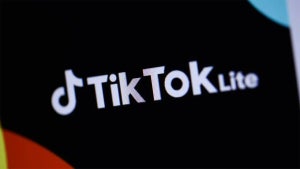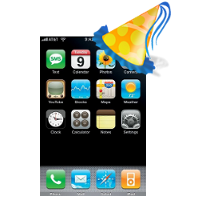 Today marks the birthday of iOS and the iPhone. The iPhone was first announced at Macworld on January 9th, 2007, and with it came a fundamental shift in software and hardware design. It took everyone completely by surprise and subsequently dominated the smartphone market for years to come.
Today marks the birthday of iOS and the iPhone. The iPhone was first announced at Macworld on January 9th, 2007, and with it came a fundamental shift in software and hardware design. It took everyone completely by surprise and subsequently dominated the smartphone market for years to come.
The iPhone became available on June 29th, 2007 with scores of people lining up to get their hands on this magical device. Let’s take a walk down memory lane and look at the evolution of the iOS operating system to see how far Apple has come.
Until the iPhone came along, smartphones and their operating systems were a mess. Windows Mobile 6 was complicated, slow, and ugly. Apple came along and showed the whole smartphone industry how it was meant to be done. Although iOS didn’t introduce anything brand new, it was groundbreaking in how it made the operating system approachable. Apple blew everyone away by how simple the operating system was and how touch was more intuitive to a consumer than a stylus could ever be.
![]() As people adopted iOS, it became apparent that there was something missing: apps. Steve Jobs thought that there wasn’t a need for apps as developers could just code webapps to work with Safari on the iPhone. Apple realized that this was an important issue and released the App Store with iOS 2. It was the App Store that made software sexy again and launched a multi-billion dollar industry.
As people adopted iOS, it became apparent that there was something missing: apps. Steve Jobs thought that there wasn’t a need for apps as developers could just code webapps to work with Safari on the iPhone. Apple realized that this was an important issue and released the App Store with iOS 2. It was the App Store that made software sexy again and launched a multi-billion dollar industry.
The next version of iOS had to be great. Apple faced a competitor that was rapidly gaining gaining ground: Android. iOS 3 had to address many issues that iPhone users were complaining about. Copy and paste finally made it as well as push notifications. iOS 3 continued Apple’s paradigm of polishing existing technologies and ideas without doing anything groundbreaking.
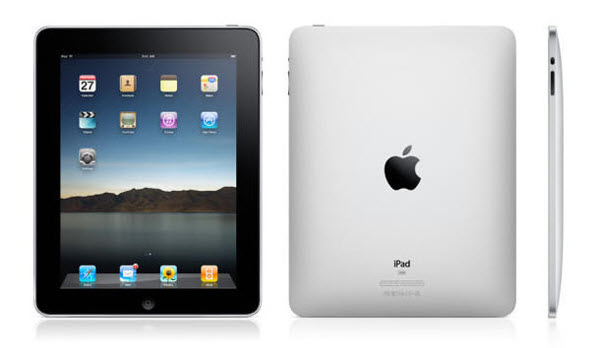
Around the same time iOS 3 was released, the iPad announcement changed many design and interface paradigms. iOS was completely redesigned for a tablet experience and it worked. People went nuts over the iPad, way more than they ever did for any Windows-powered slate. Everything good about iOS for the iPhone made its way on the iPad and was even more stunning. Having a larger screen made iOS an operating system that was tangible.
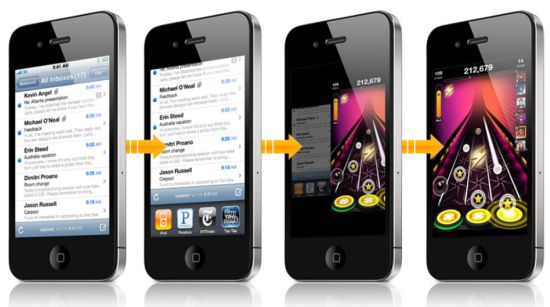
iOS 4 was announced along with the iPhone 4 and the beautiful Retina Display. This version of iOS was a milestone for Apple as it finally conceded to demand for multitasking. This time Apple managed to pull off something that no one else had before: implementing a type of multitasking that wouldn’t drain the battery.
Critics complained that it wasn’t true mutlitasking where applications actually ran in the background. Instead, iOS 4 “froze” apps in the background so that users would continue where they left off when jumping back to an app. It works well for the most part, but isn’t as powerful as true multitasking that’s found on Android.
![]() Then came a little assistant named Siri. Apple purchased Siri and baked it into iOS 5. Siri wowed audiences for her ability to understand and respond in natural language, instead of relying on a few key phrases. iOS 5 also introduced the Notification Center, which was clearly influenced by Android. Apple also introduced iCloud in hopes that consumers would forget about MobileMe, its terrible attempt at cloud computing.
Then came a little assistant named Siri. Apple purchased Siri and baked it into iOS 5. Siri wowed audiences for her ability to understand and respond in natural language, instead of relying on a few key phrases. iOS 5 also introduced the Notification Center, which was clearly influenced by Android. Apple also introduced iCloud in hopes that consumers would forget about MobileMe, its terrible attempt at cloud computing.
Now we’ve come to iOS 6, which was just announced at WWDC 2012. The biggest change was Apple ditching Google Maps in favor of it’s own maps application, powered by TomTom. iOS 6 also marks Apple’s foray into digital wallets with Passbook. Apple could be positioning itself to compete with Google Wallet, though NFC (near field communication) chips are notably absent from the iPhone 4S.
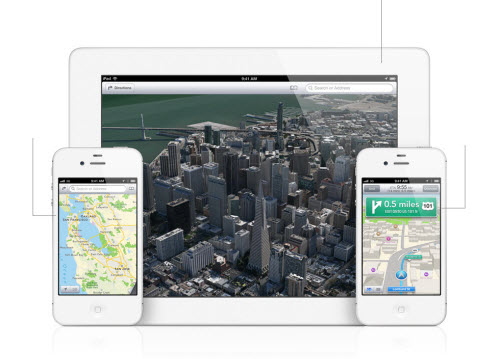
If we can take away one thing from iOS’s history, it’s that Apple is the king of polish. They rarely introduce something that’s completely revolutionary but instead concentrate on polishing existing technologies and ideas, making the hardware and software an complete, fluid ecosystem. It’s easy to see why consumers love Apple’s ecosystem but with rising competition from Android and Windows Phone, you have to question how long can Apple last before its polish just isn’t enough.

